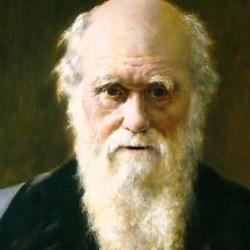According to many biologists and philosophers of science, evolution has eliminated all notion of purpose, teleology, and form from biology. Living things are machines that operate by chemical and physical processes, guided by the purposeless process of natural selection.
Stephen Talbott begs to differ, at length and devastatingly. Wherever we look, we see living things acting with purpose. We explain it as instinct, but that can’t be right. A robin tugs a worm from the earth and swallows it, because of her instinct for survival. Or not: Sometimes she doesn’t swallow it, but carries it back to the nest to feed to her chicks. Talbott agrees that the robin is not making a free decision as a human being would; still, the bird decides and does so with a particular end in view. We can’t tell the story of the robin without talking about purpose.
Evolutionary dogmatists like Richard Dawkins admit that living things look “as if” they are acting with purpose. Talbott suggests that no one actually has probed that “as if”: “the ‘as if’ claim is curiously vague. How, after all, might we distinguish between an organism capable of expressing wise intention and an organism capable of conjuring an overwhelming illusion of wise intention? Is there, in fact, evidence that can properly override the judgment of our own eyes?” These questions aren’t answered because they aren’t even asked.
By the end of his essay, Talbott has suggested we need to consider a revival of teleology and forms and all those old-fashioned Aristotelian notions—not out of metaphysical necessity, but simply to save the appearances, to account for the things we see living things doing every day. Talbott isn’t attacking evolution (which is a shame); he argues that evolutionary arguments have become too facile and that natural selection has become a black box to explain away and ignore the deep mystery of living things.
He says things like: “researchers implicitly lend the experimental subject their own interpretive understandings, whether the subject is a human being, a bird, or a worm. Without interpretive activity—activity through which meanings are apprehended—there is no story to be told, as opposed to a set of physical causes and consequences. And without a story, there is no organism.” And, more succinctly: an “organism is not so much something with a causal, physical origin as it is a power of origination—or a power of storytelling.”
There’s far too much to summarize. Read Talbott’s essay. Read it slowly. Then read it again.











